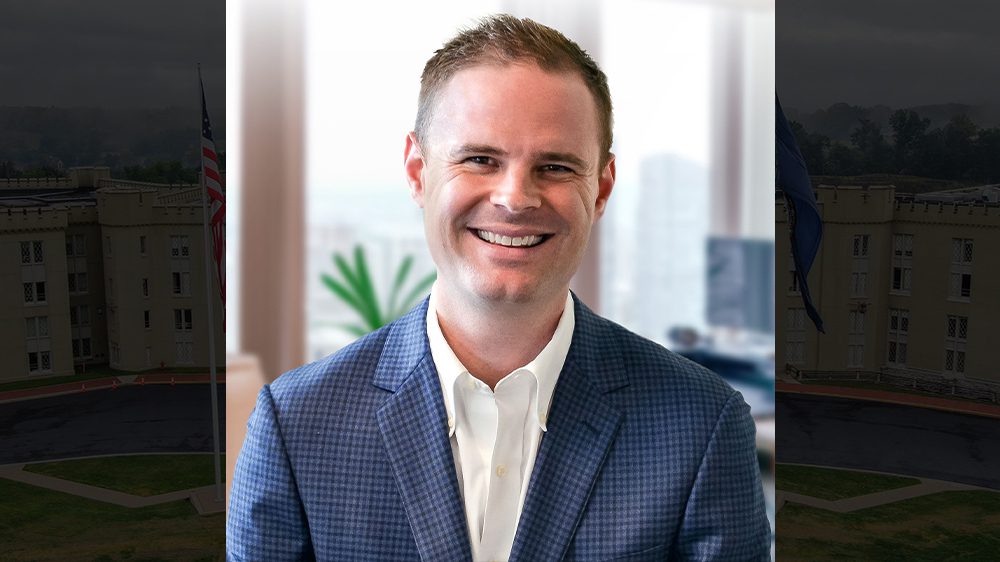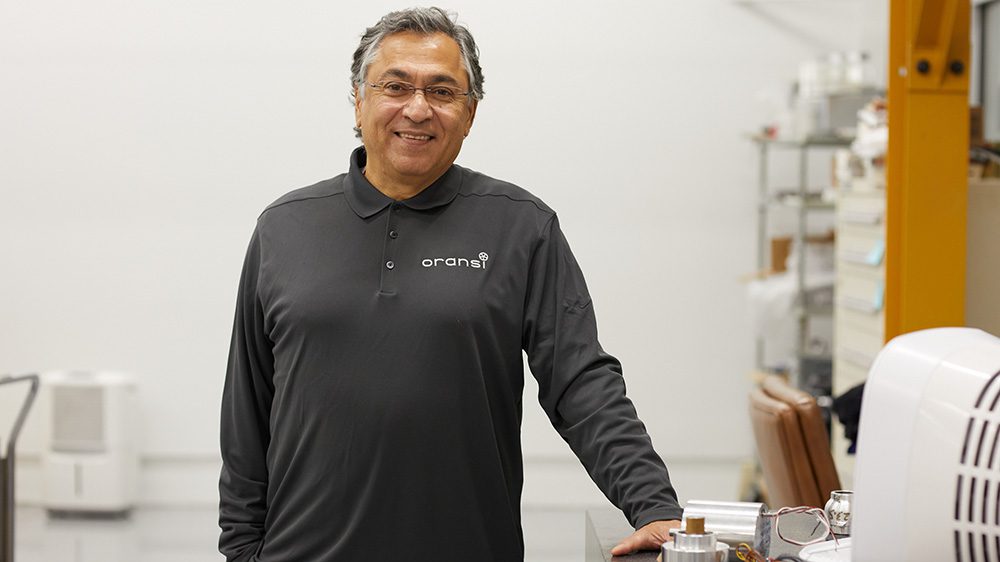This article is the first of several that will appear in the Alumni Review or Turnouts, our monthly digital newsletter, delving deeper into some of the issues addressed by the recent VMI Alumni Association survey.
Regarding diversity, opportunity, and inclusion, the survey reported that 432 individuals (14.1% of 3,004 respondents) mentioned DOI/DEI-related keywords in their written comments. As promised, below is an overview of the current training in order to advance the discussion on creating a better and stronger VMI.
Briana Williams, VMI chief diversity officer, offered to walk us through the current program related to DOI/DEI. Williams, who has worked at VMI since February 2022, has professional experience with Title IX, new student orientation, and financial aid. She holds a Bachelor of Arts degree in English from Marygrove College and a master’s in leadership and higher education administration from Baldwin Wallace University.
Q: What is the objective of the DOI efforts?
A: The DOI program is about preparing graduates to be mission ready. VMI is recognized for creating leaders of character—individuals who can successfully lead diverse groups in the military or private sector after they graduate. To best prepare our cadets for all levels of leadership, it is important to include topics and coursework that build perspective on the benefits of a diverse team.
Q: What is the beacon or guiding force behind VMI’s Inclusive Excellence training?
A: Our direction from the BOV was very clear:
- To create and foster a more diverse VMI;
- To create and foster a safe, equitable, and inclusive environment for all on post;
- To assure that we maintain a safe, rigorous process for escalating issues which have even the potential to violate the Code of a Cadet.

Briana Williams, VMI chief diversity officer, offered to walk us through the current program related to DOI/DEI. Williams, who has worked at VMI since February 2022, has professional experience with Title IX, new student orientation, and financial aid.
In addition to their guidance, we were very careful to reach out to respected organizations to understand their DOI programs and strove to make sure our programs aligned with Virginia Gov. Glenn Youngkin’s Diversity, Opportunity, and Inclusivity program; VMI’s mission and leader development system; BOV Executive Committee objectives; the Department of Defense Diversity, Equity, Inclusion, and Accessibility Strategic Plan 2022–23; the Southern Association of Colleges and Schools Commission on Colleges Diversity, Equity, and Inclusion Position Statement; and the National Collegiate Athletic Association Inclusion Statement.
Gene Scott ’80, Board of Visitors Inclusive Excellence Committee chair, presented to the BOV in 2023 that the Code of the Cadet guides the training goals and objectives of this program. Aspirations of integrity, respect, treatment, and understanding to all, as well as good manners, grace, proper humor, and humility, are commonplace characteristics in the code. In addition, the statement in the Code of the Cadet, “A cadet stands against intolerance, prejudice, discrimination, hate, and oppression,” is the signifying reason for cadets to understand the importance and benefits of a diverse population.
Q: What other organizations and programs does the VMI Inclusive Excellence training align with?
A: When planning for this year, we were very careful to reach out to respected organizations to understand their DOI programs. We strive to make sure our programs align with Virginia Gov. Glenn Youngkin’s Diversity, Opportunity, and Inclusivity program; VMI’s mission and leader development system; BOV Executive Committee objectives; the Department of Defense Diversity, Equity, Inclusion, and Accessibility Strategic Plan 2022–23; the Southern Association of Colleges and Schools Commission on Colleges Diversity, Equity, and Inclusion Position Statement; and the National Collegiate Athletic Association Inclusion Statement.
Q: The VMI DOI program has greatly evolved since its beginning in 2021. What do you see as its strength of position at VMI today?
A: We have gotten better at customizing a program that works within VMI’s construct of an already existing honor system, expectations of behavior and decorum, and a mission-focused leadership development process. We have taken cues from VMI’s objective to develop leaders of character who will be able to lead in a complex world under complicated pressures and influences.
Q: What sort of feedback have you received from your cadet trainers?
A: Our trainers are the best of the best. Over the last 2–3 years, I have seen many of them develop as leaders through this process by taking opportunities to improve their own presentation style to make the program the very best it can be. Being an Inclusive Excellence facilitator offers an opportunity for cadets to develop skills that are useful throughout their cadetships and into their careers. They’ve often said they have become better at public speaking, improved their ability to adapt, are more comfortable having difficult conversations, and have become better leaders.
DOI Training Overview
(Approximately 50 minutes of training per academic year)
Rat Mass: Participants choose from several descriptors they align with, such as academic major, race, NCAA athlete status, gender, political views, religion, sexual orientation, socioeconomic status, etc. They then choose which one they want to discuss in a small group. Goal: To successfully integrate within the system of followership under the VMI Honor Code, they must value their shared identity as rats and future VMI cadets. Participants will understand that although disparate experiences and backgrounds have brought them to VMI, they are united in the fact they are each committed to embodying the VMI Honor Code and way of life.
3rd Class: Participants list five to 10 influential people in their lives—not family. They then identify race, gender, religion, educational background, etc., and make a check next to each person who shares the same dimension of diversity as themselves. While many of us have influencers who are similar to ourselves, as future leaders, cadets may want to consider avenues for adding more diverse perspectives to their thinking. Goal: Mitigating our own biases and identifying our blind spots is essential to making leadership decisions that are fair, building trust with followers, and influencing others.
2nd Class: Participants build a list of as many as 13 values they are resolute to live by and slowly narrow their list to two core values. Then, in small groups, cadets will be asked to share (as much as they are comfortable) what their two core values are. Facilitators will lead the class in discussions about the process for narrowing their values list, the difficulties they faced, and the ways in which cadets’ core values show up in their lives at VMI. They will ask the group to consider the benefits of having a Corps whose members share different core values. Goal: As the 2nd Class prepares to assume leadership of the Corps, having another opportunity to reflect on their values will help to reinforce the connections between their walk on the VMI leader journey and the true meaning of honorable living.
1st Class: Guest speaker event; the speaker will be a military or industry leader who is able to discuss how diversity and inclusion-related situations have played out in their career and impacted their decision-making. This year’s speaker was Steffanie Easter, acting assistant secretary of the Army for acquisition, logistics, and technology. Goal: Cadets should understand how integrating diverse perspectives can strengthen teams. The work of leading a diverse group can have moments of misunderstanding, tension, and even conflict that must be skillfully managed to see positive gains. Some 1st Class lectures may extend beyond 50 minutes in total, depending on the introduction of the speaker and length of the lecture.




